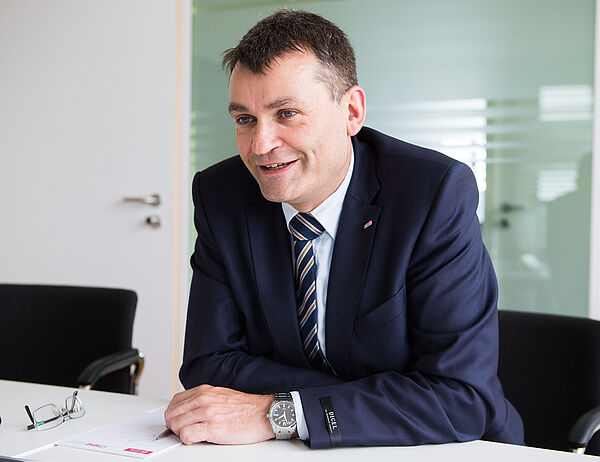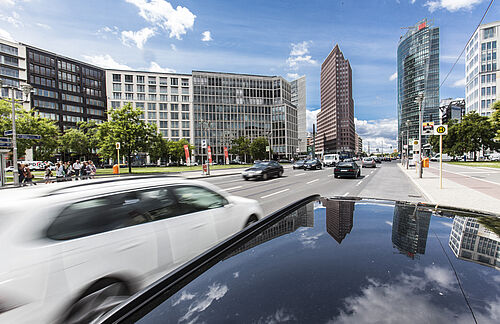![[Translate to English:] [Translate to English:]](/fileadmin/_processed_/9/9/csm_2023-07-18_Bild_des_Monats_August_2023_Besuch_Olaf_Lies_im_06_723c041952.jpg)
Mobility is a global issue for the future. Increasing globalization, a growing world population, demographic changes and rising urbanization are increasing the volume of traffic and leading to changes in mobility needs worldwide. In this context, there are numerous technological, ecological, economic and social challenges. As one of the most modern and largest research centers for mobility research at a German university, the Automotive Research Center Niedersachsen (NFF) at the TU Braunschweig meets these challenges with innovative and sustainable concepts.
The volume of traffic is increasing worldwide. Mobility is important for the economy, but also for personal life. The diversity of the NFF and its members is reflected in the project landscape. Interdisciplinary, often international teams are researching important partial solutions as well as answers to big questions.
Spokesman of the NFF Board


The following questions, for example, are the focus of research interest: How can the number of traffic accidents be reduced? How can fuel consumption and noise be reduced through new forms of propulsion, materials or innovative surfaces? What will the energy sources of the next generation and the mobility concepts of the future look like? And what are the advantages of autonomous driving?
Future-proof vehicles must be contractually integrated into the urban environment and focus on people and their situation-specific needs via mobility services. Intelligent vehicle systems based on new technologies for environment recognition and communication with other road users and the surrounding infrastructure offer new opportunities for a high level of safety and comfort. These vehicles are also characterized by new low-emission drive technologies with minimal vehicle weight and high cost attractiveness. There is still a lot of potential in the design and production of lithium-ion batteries - a key technology for electromobility. Costs, energy density, weight, cyclical and calendar service life and charging speeds can be redesigned.
The NFF is not only involved in research and teaching, but also increasingly in the field of further training and qualification in all areas of ground-based mobility. Together with partners from industry, politics, associations and employee representatives, we are working on the development of further training concepts. The aim is to qualify employees for the changes and new challenges in the world of work resulting from the transformation of the automotive industry through digitalization, electrification and the resulting changes to business models, for example. Skills are developed, work is redesigned and future-proof qualifications are taught.